Life In France- FAQs
– France offers affordable housing and is a beautiful, culturally rich country.
– It borders eight European nations, each with distinct styles and food.
Top Destinations:
Whether you’re looking for fun and sun, a peaceful retirement, or the chance to earn some extra income, you’ve got a real world of opportunity open to you… In short, we’ve done our best to narrow down your best options, but only you can decide the right country for you.
Best For:
How Much Will It Cost You To Live Overseas?
The only honest answer is, we have no idea. And neither does anyone else. The only one who can answer that question is you. Here’s the most important thing to understand about budgeting your new life overseas…
Follow Us:
Join our Weekly Newsletter
Overseas Property Alert
Sign up for our weekly newsletter to receive expert insights on the best international real estate investment opportunities.
Upcoming Events
Live and Invest In Spain Conference
Offshore Wealth Summit
Greece Workshop
VALENCIA, SPAIN
Sep. 17-19, 2025
PANAMA CITY, PANAMA
Oct. 15-17, 2025
VIRTUAL
Nov. 13, 2025
Contact Our Events Team
Reach us with your questions by email at: events@liveandinvestoverseas.com
Unlock The World
Overseas Havens Reports
Conference Kits
Lahardan Books
Our Customer Service team is here to assist with any questions or concerns CustomerService@LiveandInvestOverseas.com
Top Destinations:
Whether you’re looking for fun and sun, a peaceful retirement, or the chance to earn some extra income, you’ve got a real world of opportunity open to you… In short, we’ve done our best to narrow down your best options, but only you can decide the right country for you.
Best For:
How Much Will It Cost You To Live Overseas?
The only honest answer is, we have no idea. And neither does anyone else. The only one who can answer that question is you. Here’s the most important thing to understand about budgeting your new life overseas…
Follow Us:
Join our Weekly Newsletter
Overseas Property Alert
Sign up for our weekly newsletter to receive expert insights on the best international real estate investment opportunities.
Upcoming Events
Live and Invest In Spain Conference
Offshore Wealth Summit
Greece Workshop
VALENCIA, SPAIN
Sep. 17-19, 2025
PANAMA CITY, PANAMA
Oct. 15-17, 2025
VIRTUAL
Nov. 13, 2025
Contact Our Events Team
Reach us with your questions by email at: events@liveandinvestoverseas.com
Unlock The World
Overseas Havens Reports
Conference Kits
Lahardan Books
Our Customer Service team is here to assist with any questions or concerns CustomerService@LiveandInvestOverseas.com
THE 10 BEST PLACES TO RETIRE IN 2025

PLUS: A SPECIAL BONUS DESTINATION
We Value Your Privacy! We will not share your email address with anyone else, period.
Home » Best Countries To Live, Invest, And Retire Overseas » Europe » France: Everything You Need To Know In 2025 » Life In France
Learn more about this and other countries in our free, daily Overseas Opportunity Letter. Simply enter your email address below and we’ll send you our FREE REPORT: The 10 Best Places To Retire In 2025
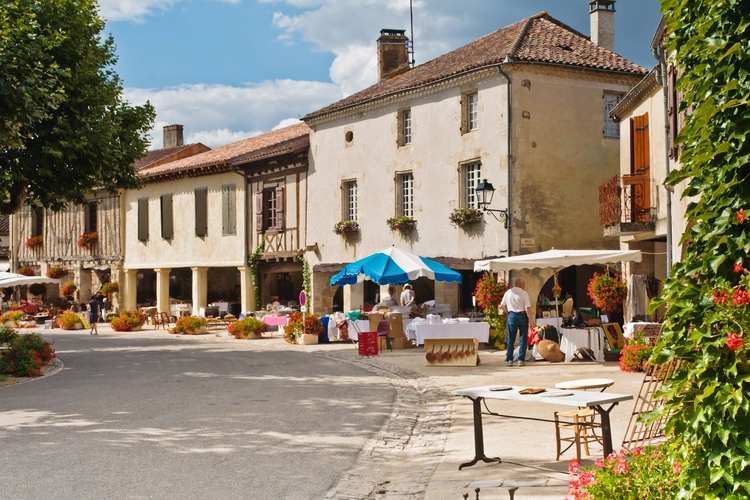
Living in France truly is the good life defined. From Paris to the vine-covered countryside to the beaches on the Atlantic and the Mediterranean coasts, the lifestyle options on offer here are many and varied, but all your choices mean Old-World living at its best.
Foodies and wine lovers know that to live in France is to be at the center of the universe.
Whether it’s paté de campagne and a rustic Beaujolais, grilled salmon with a rosé d’Anjou, or caviar and a fine champagne, the French are past masters at pairing wine with food. After all, they’ve been doing this since the Middle Ages.
France’s long and fascinating history can be found in every corner of the country.
Dating back to the prehistoric cave paintings at Lascaux, through the Roman and Frankish invasions, the royal house of the Bourbons and the reign of Napoleon, and up to the present, each era has left its mark here, in the cuisine, the architecture, the arts, and in fashion.
For the culturally minded, life in France is rich indeed. In Paris alone you can find over 130 museums, including the world-famous Louvre, the Musée d’Orsay, and the National Museum of Modern Art at the Centre Pompidou.
The number of galleries showcasing fresh, new works is truly bewildering

Reviewed By Lief Simon
Lief Simon is the managing editor of Global Property Advisor, Simon Letter, and Offshore Living Letter. He has purchased more than 45 properties, investing in 23 different countries around the world.
Start Your New Overseas Life Today
A world full of fun, adventure, and profit awaits! Sign up for our free daily e-letter, Overseas Opportunity Letter, and we’ll send you a FREE report on the 10 Best Places To Retire In Style Overseas Today 2024
We Value Your Privacy! We will not share your email address with anyone else, period.
Living in Paris, with all its culture and charm, can be a very expensive proposition. That said, it’s also true that your cost of living can be hugely variable and highly controllable (in Paris and most anywhere else).
In Paris, you can live easily without a car, walking nearly anywhere you’d want to go.
The butcher, the baker, the grocer, the wine shop, a half-dozen busy cafes, and as many lovely parks and gardens are all less than 15 minutes’ walk from almost any point in central Paris. And, when you want to venture beyond your quartier, the Metro will take you from restaurant to nightclub, from museum to cafe for around US$2.
Burgundy offers many attractive bargains if an old stone cottage in wine country is your vision of life in France.
The town of Dijon enjoys a lively atmosphere while avoiding the hassle, traffic jams, and the pollution usually associated with city centers.
The Palais des Ducs et des Etats de Bourgogne is home to the Musée des Beaux-Arts and the market hall here is a wonder of glass and steel designed by Gustave Eiffel. If you enjoy shopping, food, culture and nightlife, Dijon has you covered.
The village of Carnac in Brittany is home to the seaside resort of Carnac-Plage, one of the most popular sites on this coast, with five beaches stretching for a total of nearly three kilometers.
Saint-Colomban is a magnet for windsurfers and the area also offers a thalassotherapy center. (Thalassotherapy is a wellness regimen believed to have originated in Brittany utilizing sea water in hydrotherapy, seaweed wraps, and other applications.)
Most importantly, no restrictions are imposed on foreigners when it comes to buying property in France.
France correspondent Abby Gordon shares a snapshot of life in the Marais in Paris. Here’s a typical day…
7 a.m.: Wake up, stroll over to La Favourite on Rue de Rivoli to grab a cup of coffee, OJ, and a croissant, and catch up on my New York Times subscription via iPad and La Favourite’s super-speed Wi-Fi.
Or, if the weather’s nice, maybe I grab a croissant at Aux Désirs de Manon on Rue Saint-Antoine and take advantage of the free Wi-Fi in Square Georges Cain on Rue Payenne.
8:30 a.m.: Head over to the public pool at Saint-Merri for a swim. Don’t forget, speedos (not shorts) are obligatory for men, and bathing caps are obligatory for all.
10 a.m.: Stop by BHV (the Bazaar de l’Hôtel de Ville Department Store) on Rue de Rivoli to buy lightbulbs, batteries, and other DIY items from their Home Depot-esque basement.
11 a.m.: Depending on the season and what’s on, maybe take in a museum, an art gallery, or a photo exhibit.
12:30 p.m.: The French eat lunch at exactly 1 p.m., so I try to beat the crowds and grab a table at one of my favorite restaurants early. Pamela Popo on Rue François Miron is my choice for sautéed scallops.
2 p.m.: Volunteer for a couple of hours with the SOS Helpline, answering calls from English speakers in need.
4 p.m.: Make a few calls back to relatives in the United States before they leave for work (it’s free from your landline in Paris).
4:30 p.m.: Pick up a poulet rôti (roast chicken) from one of the vendors on Place Saint-Paul, cheese from fromagerie Pascal Trotté, and a baguette from Paul. Swing by the supermarket for veggies and toilet paper (not everything in Paris is romantic).
5 p.m.: Meet a friend for a quick apéro at Les Philosophes on Rue Vieille du Temple.
6 p.m.: Head home for a rest and to catch the latest news on CNN or BBC World.
7 p.m.: Throw the chicken in the oven to warm it up and prepare some sides. Dining at home tonight.
8:30 p.m.: If it’s a clear evening, maybe a stroll down to the river then along the quai to the Hôtel de Ville to enjoy a night view of this architectural marvel.
10:30 p.m.: Bonne nuit…

Reviewed By Lief Simon
Lief Simon is the managing editor of Global Property Advisor, Simon Letter, and Offshore Living Letter. He has purchased more than 45 properties, investing in 23 different countries around the world.
Start Your New Overseas Life Today
A world full of fun, adventure, and profit awaits! Sign up for our free daily e-letter, Overseas Opportunity Letter, and we’ll send you a FREE report on the 10 Best Places To Retire In Style Overseas Today 2024
We Value Your Privacy! We will not share your email address with anyone else, period.
– France offers affordable housing and is a beautiful, culturally rich country.
– It borders eight European nations, each with distinct styles and food.
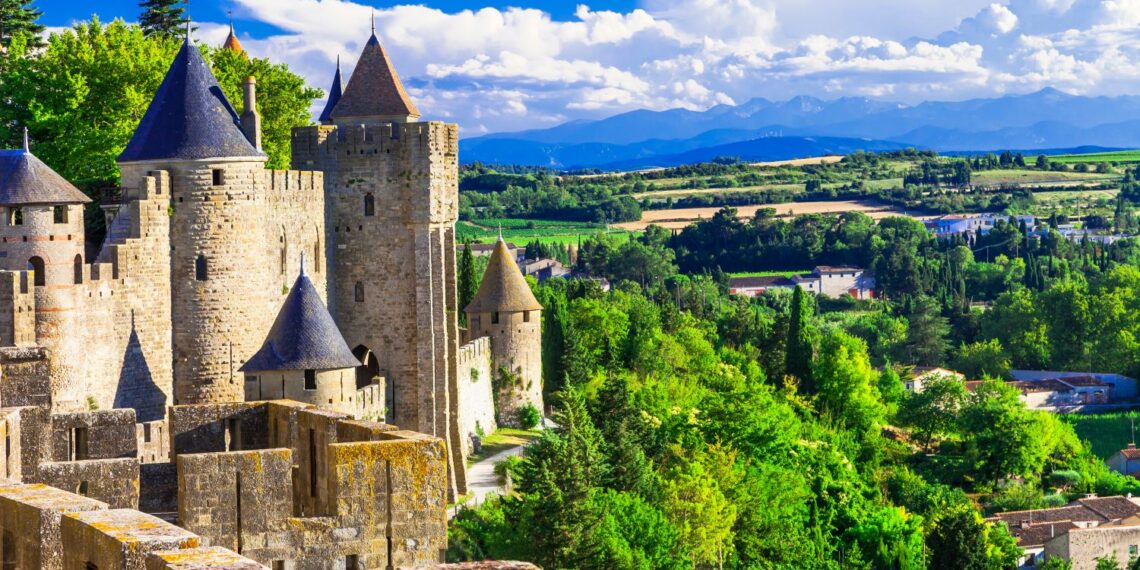 . '
. '
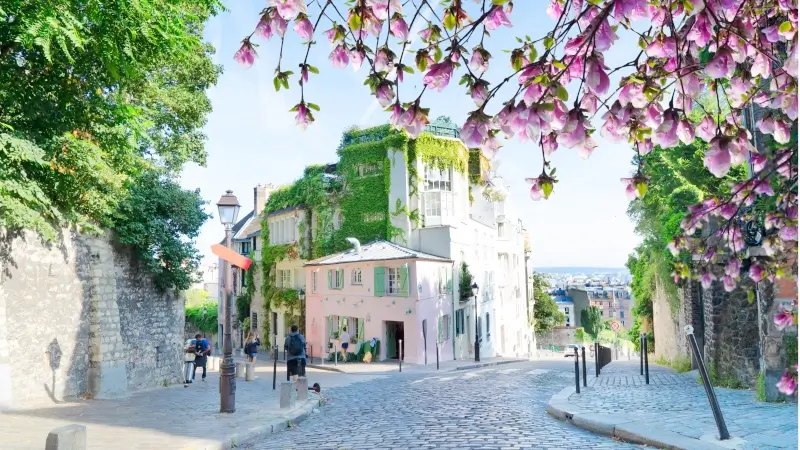 . '
. '
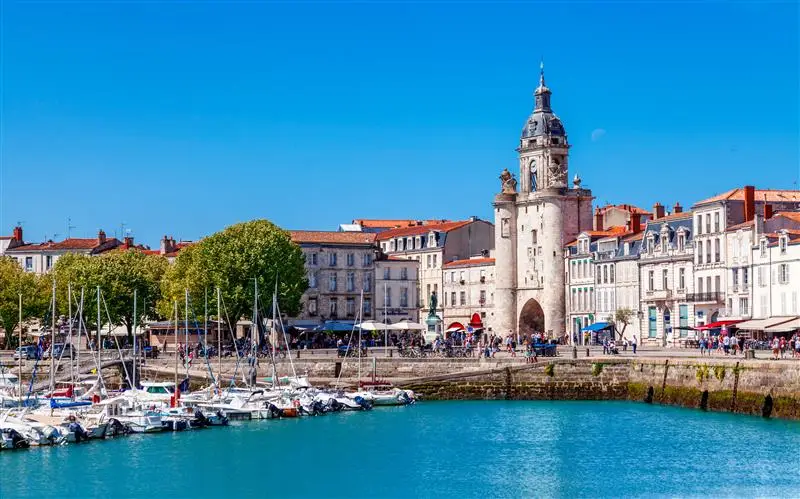 . '
. '
 . '
. '
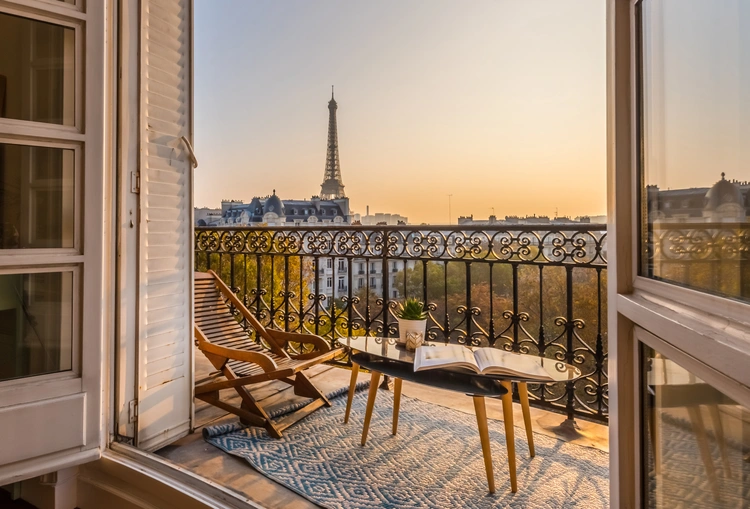 . '
. '


We Value Your Privacy! We will not share your email address with anyone else, period.
As seen in

© 2008 – Live and Invest Overseas™ – All Rights Reserved.
Top Countries
Budgets
Affordable
Resources
Real Estate
Overseas Property Alert
How To Become Independently Wealthy And Fund The Lifestyle Of Your Dreams
Buying Real Estate For Cashflow
Discover tips and strategies used by global property investing veterans
Explore Our Latest Posts
Learn how to invest and purchase property abroad…
Conferences
Live and Invest In Spain Conference
Offshore Wealth Summit
GREECE WORKSHOP
Contact Our Events Team:
Toll-Free U.S. and Canada:
1 (888) 627 8834
From Outside North America:
1 (443) 599 1221
Working Hours
Monday – Friday 08:00 am – 17:00 pm EST.
Reach us with your questions by email at: events@liveandinvestoverseas.com
Store
Overseas Havens Reports
Conference Kits
Lahardan Books
Services
Free Report
THE 10 BEST PLACES TO RETIRE IN 2025

Sign up to receive the FREE daily e-letter, Overseas Opportunity Letter and we’ll immediately email you our editors’ latest research report…
We Value Your Privacy! We will not share your email address with anyone else, period.
Follow Us:
© 2008 - Live and Invest Overseas - All Rights Reserved.
RETIRE OVERSEAS AND LIVE LIKE ROYALTY
Sign up for FREE to learn how. Plus, check out our FREE report on THE 10 BEST PLACES TO RETIRE
RETIRE OVERSEAS AND LIVE LIKE ROYALTY
Sign up for FREE and learn how to live the good life on a modest budget, find bargain property, and more. Plus, check out our free report on the 10 BEST PLACES TO RETIRE.
We Value Your Privacy! We will not share your email address with anyone else, period.